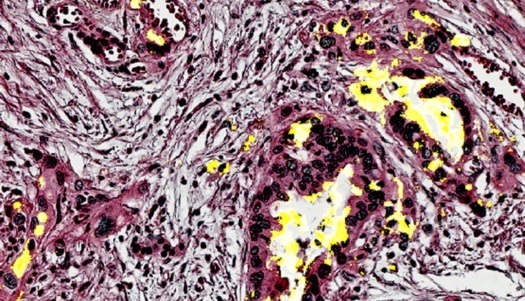Experimental Blood Test Could Catch Pancreatic Cancer More Quickly in High-Risk People
Posted on 15 Jan 2025
Pancreatic cancer is an aggressive and difficult-to-treat disease where malignant cells develop in the pancreas, a small organ near the stomach that produces hormones and digestive fluids. This cancer is particularly challenging to diagnose because it often lacks clear early symptoms, and the few symptoms that do appear can be attributed to benign conditions. By the time it is diagnosed, the cancer cells may have spread within the pancreas or to other parts of the body, a process known as metastasis, making treatment even more complicated and resulting in poorer outcomes. Detecting pancreatic cancer early significantly improves survival, but current diagnostic tools are limited. Now, an experimental blood test for pancreatic cancer is being tested by a commercial laboratory, marking a significant step towards making this test available to patients.
The new test, developed by researchers at Van Andel Institute (Grand Rapids, MI, USA) and the University of Pittsburgh (Pittsburgh, PA, USA), detects two sugars — CA199.STRA and CA19-9 — which are produced by pancreatic cancer cells and released into the bloodstream. CA19-9 is currently the standard biomarker used to diagnose pancreatic cancer. The researchers identified CA199.STRA as another cancer biomarker and developed a technology to detect it. A recent double-blinded, peer-reviewed study published in Cancer Letters showed that this experimental test identified 71% of pancreatic cancer samples accurately in the lab, compared to just 44% by the current standard test. Additionally, the new test significantly reduced the number of false negatives while maintaining a low false positive rate, as per the recent analysis. Low rates of both false positives and false negatives are crucial, as they indicate the test's ability to correctly identify the presence or absence of cancer.

Before this new test can be used by doctors to diagnose cancer, it must undergo clinical validation. In this phase, a CLIA-accredited diagnostics laboratory will adapt the experimental test into a version that works consistently under the strict conditions of a clinical lab. CLIA is a federal standard that ensures laboratory quality. The clinical validation process is expected to take two years. If the test successfully passes clinical validation, it could be used to detect pancreatic cancer more quickly in high-risk individuals, enabling earlier treatment. The test may also be useful for monitoring the progression of the disease and evaluating treatment responses in individuals already diagnosed with pancreatic cancer.
“Validation studies are essential for transforming a test developed in an academic lab into one that is used to diagnose real people,” said VAI Professor Brian Haab, Ph.D. “For a person being evaluated for pancreatic cancer, the stakes are high. Validation studies ensure that new tests work as intended.”
Related Links:
Van Andel Institute
University of Pittsburgh













